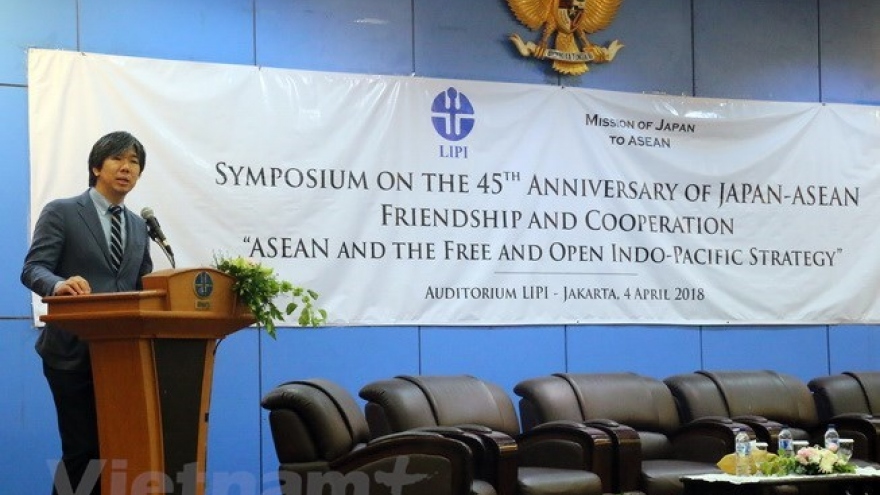ASEAN targets sustainable economic growth, financial stability
Saturday, 08:36, 07/04/2018
Maintaining sustainable economic growth and ensuring financial stability and self-resilience are key goals reached at the 22nd ASEAN Finance Ministers’ Meeting (AFMM-22), the fourth ASEAN Finance Minister and Central Bank Governors’ Meeting (AFMGM-4) and related meetings held in Singapore from April 3-6.
 |
| Vietnamese Deputy Minister of Finance Tran Xuan Ha |
The finance ministers lauded ASEAN’s progress in banking integration, insurance, capital market and wished that member states will sign the eighth Package of Commitments later this year.
The meeting took note of efforts to develop the regional capital market by strengthening capacity and carrying out initiatives such as amending the ASEAN Collective Investment Scheme, issuing ASEAN Green Bond standards, piloting the connectivity of securities markets, opening a portal on listed companies in ASEAN and rotating capital market experts among regional countries.
The ministers welcomed achievements in harmonising the portfolio of exports-imports of 10 ASEAN member states, piloting the ASEAN Customs Transit System in Cambodia, Laos, Myanmar, Thailand, Vietnam, and exchanging certificates of origin, form D among Vietnam, India, Malaysia, Singapore and Thailand from January 1, 2018.
They wished that countries will soon approve the second Protocol on the designation of border gates and the seventh Protocol on ASEAN Customs Transit System to create a legal framework for facilitating transit goods, and refine a mechanism to deal with tax disputes.
Participants supported rallying private capital for ASEAN infrastructure upgrade and wished to partner with the Asian Development Bank (ADB), the Asian Infrastructure Investment Bank (AIIB) and the World Bank (WB) during the project preparatory and management stage.
They also expressed support to strengthen supervision capacity and activities of the ASEAN 3 Macroeconomic Research Office, as well as initiatives such as ASEAN Disaster Risk Financing and Insurance Programme and stressed the importance of ensuring cyber security in finance.
The ASEAN Finance Ministers and Central Bank Governors advocated taking creative and effective financial technological solutions and lauded the outcomes of financial inclusion in ASEAN by opening a portal on financial education and exchange of knowledge about ASEAN financial inclusion and issuing guidelines on national financial inclusion strategies.
In the banking industry, the governors applauded working groups for completing the key performance indicator and risk management tool, believing that countries will fulfill goals set in the ASEAN Strategic Action Plan for financial sustainability and inclusion.
They discussed emerging issues such as financial technology and pledged to work closely together to seek effective solutions to cyber attacks amidst the fourth industrial revolution.
The annual meetings also saw the presence of representatives from the IMF, WB, ADB, financial and banking organisations in the region.


